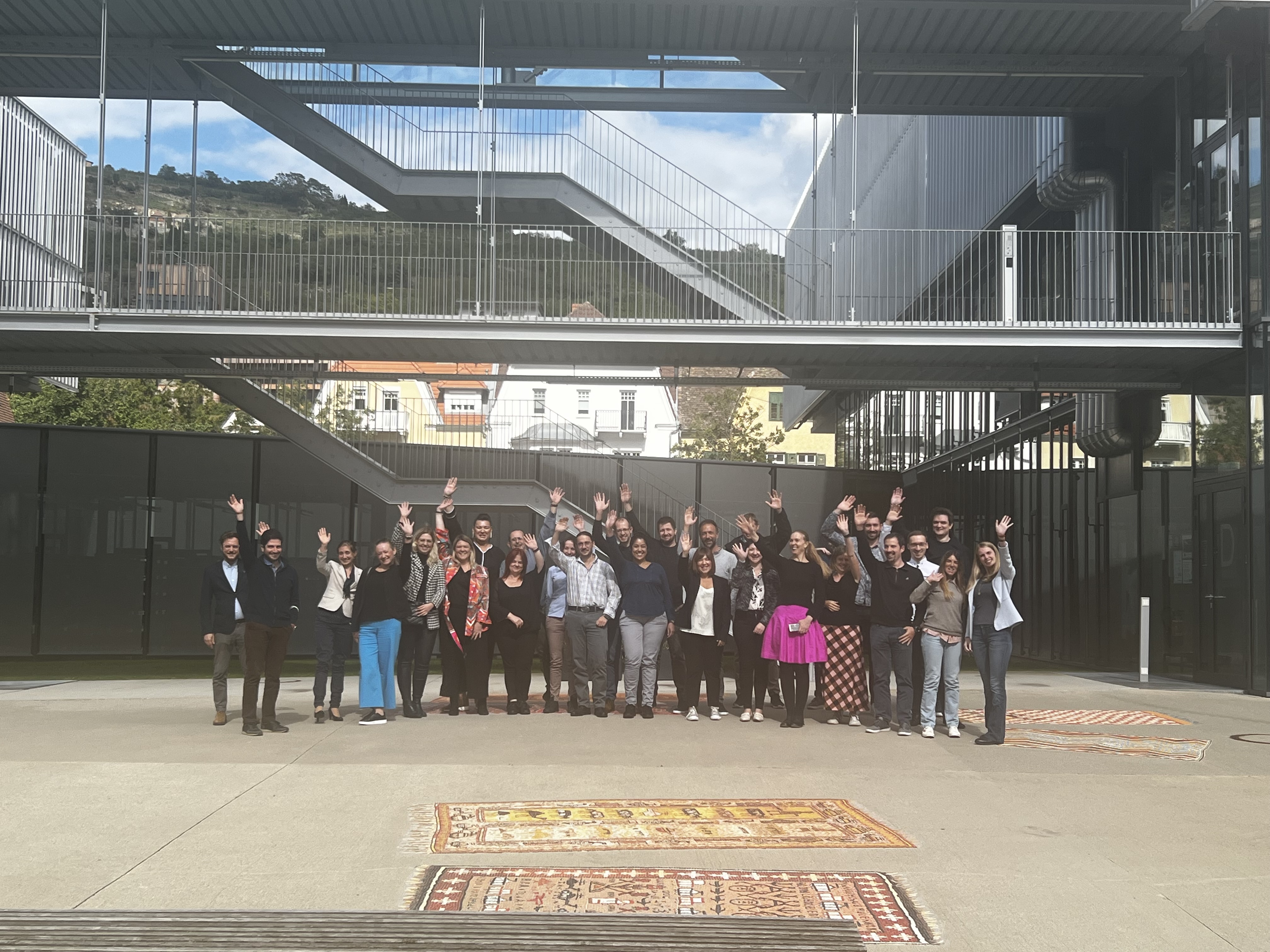The fourth inGOV Project Plenary Meeting was held in Krems, Austria on 20 – 21 September 2022, hosted by the team at the University for Continuing Education Krems (UWK). This was the second plenary in the post-Covid era to be conducted as a hybrid meeting, except that the number of in-person participants was set to outstrip that of Athens last year. As the designated local host contact, I had the privilege of organising the event in collaboration with our project manager and in-house support team, and the great responsibility of ensuring that the meeting had the right balance of project business and social interaction.

The two-day format allowed for an in-depth discussion of the issues surrounding each work package – work delivered since the last meeting, improvements undertaken in response to feedback from our mid-project review, significant achievements and progress made, detailed planning for the year to come, and potential challenges and risks to performance in the next six months – punctuated by workshops through which task leaders were able to tap into the collective expertise of the group. Project partners also got a chance to interact and exchange ideas over coffee and pastries. On the first day, the UWK Centre for E-Governance co-hosted an informal lunch during which inGOV partners got to meet the wider UWK team. The social dinner took place later that evening at a restaurant situated on the banks of the beautiful Danube.
The plenary order of business was conducted sequentially. The first day of the plenary started with an open meeting of the Project Co-ordination Committee chaired by inGOV Scientific Co-ordinator, Professor Themis Tambouris. The results of the first project review were discussed, and the main project risks identified. Task leaders then delivered a status update on each of the currently running work packages: namely, WP2 (IPS holistic framework), WP3 (ICT architecture and tools), WP4 (Pilots planning and evaluation), WP6 (Dissemination and Exploitation), and WP8 (Ethics Requirements). Targets and deadlines met were reported on, and reminders given out for those forthcoming. Progress made on planned deliverables was also discussed. The current status of all four pilots was presented. The highlight of the afternoon was a workshop, moderated by CERTH, designed to identify the major KPIs relevant to the pilot cases and to refine them for use in a forthcoming survey.
The second day of the plenary was primarily given over to workshops. First, attendees took another close look at the pilot cases, in particular the Austrian pilot. The aim of this workshop, moderated by representatives from Land Niederösterreich, CERTH and Ubitech, was to identify key insights to be obtained from the developed pilot process and tool, and to exchange ideas and experiences with other pilot owners. Another highlight of the day was the brainstorming session organized to develop the conceptual and practical foundations for WP5 (Sustainability and policy recommendations) that will start in October this year. Moderated by local hosts and work package leaders UWK, this workshop required participants to think deeply about sustainability issues with the context of the inGOV project, and how the impact of the value created through the development of the IPS framework and pilots could be extended beyond the lifespan of the project. The final agenda item of the day was the presentation made by Unisystems of the current status of WP7 (Project Management). The plenary closed with a brief review of the major issues, meeting highlights, and upcoming deadlines.
(Reposted from https://ingov-project.eu/blog/)
Author
Shefali Virkar, Ph.D.
Tags